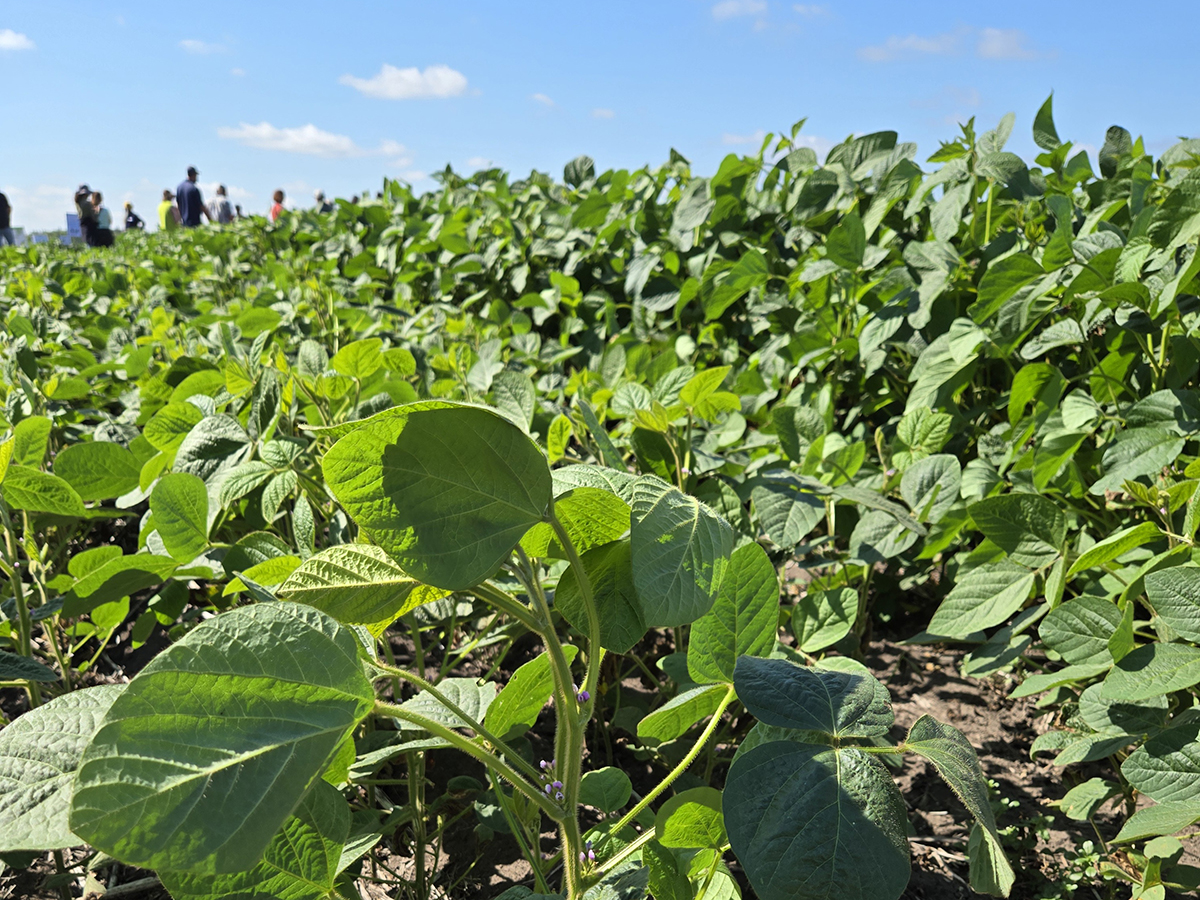Joan Merrill grew up despising gardening, a strange admission for someone who now tends 50 acres of potatoes, corn, pumpkins, cucumbers, carrots, peas and other vegetables.
“My mother made me go out and weed and I hated every minute of it,” says Merrill, who owns Robertson Valley Farm market garden near Saskatoon with her husband Don Robertson.
It wasn’t until she moved away from her family farm in New Brunswick to attend Ryerson University in Toronto that Merrill inexplicably found herself seeding a little potted garden on the balcony of her 17th floor apartment.
Read Also

Spider mites big soybean problem this season
Spider mite issues have been geographically limited but significant where they occur, said John Gavloski, an entomologist with Manitoba Agriculture.
Somehow, among all her other sowing efforts, Merrill’s mother managed to plant a begrudging love of gardening in her daughter.
“She taught me growing food was the most important thing you could do.”
These days it’s an all-consuming job for the former CBC radio producer. Merrill and Robertson seed, weed, harvest and sell vegetables sun-up to sundown from April through the end of October.
Robertson is also a former CBC employee. The two met in Edmonton where he was working as a radio technician. They spent time there as well as in Saskatoon and Yellowknife working for the network. Everywhere they went Merrill faithfully planted a garden, even in the far north where the soil was more akin to granite than dirt.
Then one fateful day in 1997 Robertson got a phone call from his father who was going to sell his hobby farm on the outskirts of Saskatoon unless the couple wanted it for themselves.
For Merrill, it was an opportunity to make her deceased father proud. She spent many hours working with her dad on their mixed operation back in New Brunswick. For Robertson, a self-described city slicker, it was a chance to try something completely different. Neither of them were fully prepared for the task they were about to undertake.
It has been six years since the couple took over the operation, which at the time consisted of six acres of irrigated crops and a lot of summerfallow and alfalfa. The farm has grown to 30 cultivated acres seeded to 40 vegetables.
In the early years their days began at 5 a.m. and ended at midnight. These days, with four full-time staff, the schedule is slightly more forgiving.
Small scale vegetable farming is not for the meek. It requires intense manual labour. Aside from a small single-row potato harvester that churns up spuds, there are no machines to aid with harvest. All of the produce is picked, washed and bagged by hand.
Robertson lost 13.5 kilograms of body weight every summer for the first few years. This summer he only lost seven kg because the operation has become more efficient and there is more help.
It’s early October and things are starting to wind down on the farm. The store, through which all of the produce is sold, is only open on weekends this late in the season. Traffic that peaked at 350 cars one weekend day in August has fallen to about 40 vehicles on a Sunday.
Robertson lifts his cap and ruffles his hair.
“It’s time for my fall cut,” he said.
Personal grooming is a luxury, not a priority in the summer. Merrill said they had time for a bath this fall day, which is a rarity during July and August when they don’t even have time to wolf down a sandwich at lunch, just a few bites if they’re lucky.
Robertson said if he has one regret about taking over the operation it’s that they have little time to devote to their 17-year-old daughter Claire and 16-year-old son Ian, both of whom work on the farm.
“The kids suffer the most,” he said.
With 40 crops maturing at different times, harvesting becomes a daily event from late June when the first new potatoes come off until pumpkin time in October.
The couple feels they have to grow a wide variety of vegetables to entice people to make the five minute drive outside a city where there are plenty of grocery stores and farmers’ markets. So they plant just about everything imaginable.
“We don’t grow eggplants and turnips. And please don’t ask us for radishes,” said Merrill.
Broccoli, cauliflower and cabbage are the only three crops that are sprayed for bugs on the “low input” operation.
The number of grasshoppers, flea beetles and root maggots attacking those crops has gone up with a rise in canola acreage in the area.
“Canola has been a real challenge for us. We have seen our pests increase amazingly,” said Merrill.
Deer can also be a nuisance come fall, grazing on corn and rotten pumpkins. But once again the couple relied on a bit of parental advice to put everything in its proper perspective.
“Don’s dad always said you just have to grow enough for everybody, including the pests.”
So they overproduce on purpose.
Business has spiked since the couple took over from Robertson’s dad. They have more time and energy to devote to the market garden than he did and they have more at stake.
“For us, it had to support a family of four,” said Merrill.
The operation has morphed from a project farm into a full-fledged family business that on a good growing year like this one generates a decent profit.
Merrill said neither of their children begrudge working in the garden like she did in her youth, likely because they’re getting a good wage to do so. But they also don’t appear eager to take over the operation some day.
Who knows, maybe they’ll have a change of heart when the phone rings and Dad is on the line wanting to sell the market garden, said Merrill.
“God help them, they may see the romance in it like we did.”















